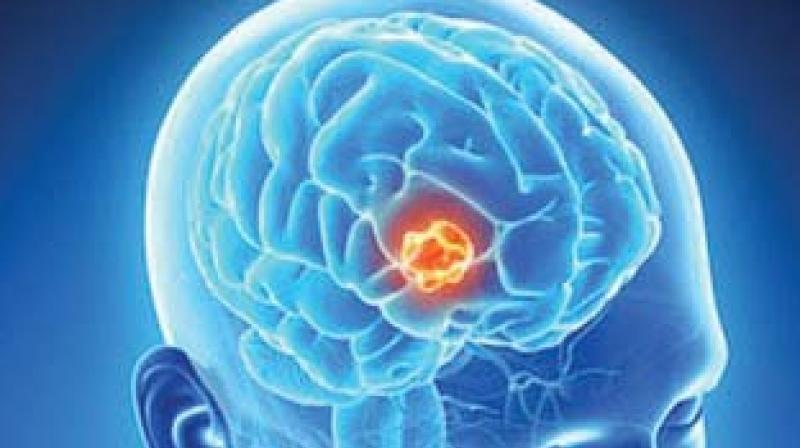Bengaluru doctors remove coconut-sized tumour from Iraqi woman's brain
The tumour was of the size of a small coconut and doctors back home told her chances of her survival post-surgery were very slim.

Bengaluru: Thirty-five-year-old Wizdan Khadim from Iraq was suffering from severe headaches and dizziness for over two years that was being dismissed by local doctors as age-related.
After a visit to a multi-specialty hospital in Iraq when she started slurring and became forgetful, an MRI revealed that she had a tumour on the left part of her brain. The tumour was of the size of a small coconut and doctors back home told her chances of her survival post-surgery were very slim.
Iraqi doctors recommended a brain surgery, and they referred her to Fortis Hospital, Bannerghatta Road. “The tumour approximately measured 8 x 7 x 6 cm,” said Dr Rajakumar Deshpande, Director, Neurosurgery, Fortis Hospital, Bannerghatta Road.
His team opted for a brain surgery using a technique called computer-assisted Neuronavigation with the help of Advanced Neuro operating 3D microscope. Sodium fluorescent dye was used to pinpoint the location of the tumour. The tumour causes blood-brain barrier to break and portions that are accessible by the dye are the ones that are tumorous. This helps in keeping the healthy part of brain safe during surgery, he explained.
“Computer-assisted Neuronavigation allows surgeons to navigate inside the skull with the help of specialised computers that process the scans of affected area in the brain and convert them to three-dimensional images. It also consists of an infrared dual camera system that tracks the surgeon’s instruments during surgery and displays their position. In the case of a tumour, the doctor is able to pinpoint the exact location of the growth and excise it with utmost precision reducing the harm to normal nerves and tissues nearby,” he said.
“There were risks of loss of vision in the left eye, given the size of the tumor. It took us more than 10 hours to operate and remove it,” he said. “The doctors had warned us about the risk of losing vision in the left eye, but I am happy that she can see now. Her right hand has gained mobility and legs are improving,” said Wazim’s brother. Dr Deshpande also recently visited Iraq for a follow-up. “She is doing fine now,” he summed up.

